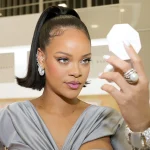Nearly three decades after the world lost Princess Diana, her brother Charles Spencer has reignited a painful debate with fresh accusations against the BBC. In an exclusive interview with PEOPLE today, coinciding with the release of investigative journalist Andy Webb's new book Dianarama: Deception, Entrapment, Cover-Up—The Betrayal of Princess Diana, Spencer connects the broadcaster's 1995 Panorama interview scandal directly to the tragic night in Paris that claimed her life in 1997. This latest revelation, drawn from declassified documents and insider accounts, paints a picture of manipulation that shattered trust and left Diana exposed at a vulnerable moment.
Charles Spencer's Renewed Outrage Over BBC Manipulation
Spencer, the 9th Earl Spencer, pulls no punches in describing the BBC's role. He calls it "appalling deception" orchestrated by high-ranking executives who hid journalist Martin Bashir's use of forged bank statements to secure the explosive interview. Those documents falsely suggested Diana's closest aides were spying on her for the royal family, deepening her isolation. "There are high-ranking people in the BBC who participated in securing this interview through deception," Spencer told PEOPLE. "I am sure this led directly to Diana being left vulnerable in Paris on the night she died."
Webb's book, published today, uncovers how BBC leaders buried evidence of Bashir's tactics for years, delaying accountability until the 2021 Dyson inquiry. That report confirmed the deceptions but stopped short of linking them to Diana's fate. Spencer disagrees vehemently. He argues the interview eroded Diana's confidence in her support network, pushing her toward riskier decisions, including traveling without full security in the French capital. The timing feels urgent now, as new details from Webb's research emerge, forcing a reevaluation of events long considered closed.

Princess Diana in a tiara — decades after her passing, the People’s Princess remains an icon whose legacy generates billions annually through media, fashion, and global tourism.
The Heartbreaking Ripple Effects on Diana's Life
Diana entered the Panorama interview already scarred by scandals like the leaked "Squidgygate" tapes, which exposed private conversations and fueled her distrust of institutions. Bashir's lies preyed on that fragility, convincing her that betrayal lurked everywhere. Patrick Jephson, her former private secretary, captures the raw emotion in his comments to PEOPLE. "She was in a state of justified anxiety," he said. "It is not paranoia if you have reasonable grounds to believe that people are out to get you."
The fallout unfolded in chaos over the next two years. Diana divorced Prince Charles, stepped back from royal duties, and navigated a media storm that left little room for error. Webb reflects on the human cost with quiet devastation. "Her life became untethered," he writes. "Between the interview and her death, there was chaos. So much new information in this book sheds light on the betrayal she endured. She might plausibly still be alive today, a grandmother at 64, enjoying her five grandchildren. The consequences were lethal." It's a gut-wrenching what-if that lingers, reminding us how one act of deceit can unravel a life.
The BBC stands by its 2021 apology and acceptance of the Dyson findings, but for Diana's family and admirers, the wounds run deep. This scandal serves as a stark warning about media ethics in an era of unchecked sensationalism.
Diana's Legacy: A Billion-Pound Force That Keeps Growing
Even as the pain of her loss endures, Diana's influence has blossomed into an economic powerhouse. Analysts estimate her legacy pumps over £4 billion into the UK economy each year through a web of media deals, merchandise, tourism, and charity boosts. Documentaries and biopics like Netflix's The Crown draw millions of viewers, while books and fashion lines inspired by her style rake in licensing fees. Commemorative coins, stamps, and jewelry sell out worldwide, turning nostalgia into profit.
Tourism sees the biggest surge. Sites like Kensington Palace and Althorp House attract over 1.5 million visitors annually, many drawn by Diana's story. Anniversaries and new projects, such as Webb's book today, spark fresh waves of interest, filling hotels and boosting local businesses. Charitable arms tied to her causes, from landmine clearance to HIV support, report funding jumps of up to 30% after major media events.
According to analysis reviewed by Finance Monthly, this isn't mere sentiment, it's a measurable engine. David Haigh, CEO of Brand Finance, a leading brand valuation firm, emphasizes the emotional pull that drives it all. "Princess Diana's image evokes such profound connection that it sustains a brand value far beyond her lifetime, fueling industries with billions while honoring her compassionate spirit," Haigh has observed. His words carry weight, as Brand Finance pegs the broader royal brand at over £5 billion, with Diana's iconic status contributing a vital share. It's bittersweet, this blend of grief and gain, but it underscores how one woman's kindness ripples through economies long after she's gone.

Princess Diana’s two beloved sides — casual and approachable versus elegant and glamorous — showcase the People’s Princess whose influence still drives billions in fashion, media, and tourism decades after her passing.
Unpacking the Business of Posthumous Personal Brands: Diana's Hidden Economic Engine
At the heart of Diana's financial legacy lies a fascinating business concept called posthumous personal branding, where a celebrity's image and story continue to create value long after their passing. Think of it as turning a person's enduring appeal into a commercial asset, much like how Elvis Presley's estate earns millions from music rights and theme parks each year. For Diana, this means her name powers everything from high-street fashion knockoffs to global charity campaigns, without her ever signing another contract.
What makes this angle compelling today is how digital media amplifies it. Streaming services and social media virality turn old stories into new revenue streams. Take the 2023 release of a Diana-focused documentary series, it not only topped charts but also lifted UK tourism spending by an estimated £200 million in the following quarter, per VisitBritain data. This isn't random, it's strategic, experts say. Brands license her likeness for authenticity, tapping into the trust she built through humanitarian work, which boosts sales by 15-20% on average for associated products.
The insight here goes deeper. In a crowded market, Diana's brand stands out because it blends vulnerability with strength, resonating in tough times. Financial experts interpret this as a hedge against economic downturns, where consumers crave uplifting narratives. For businesses, it's a lesson in legacy planning, no matter your scale, building emotional equity early can yield returns for generations. Diana's case shows how one life, marked by tragedy, can quietly support thousands of jobs and fund vital causes, proving that true influence outlives us all.
What Readers Are Wondering: Diana's Story Unpacked
How Did the BBC's Deception in the Panorama Interview Unfold?
The 1995 interview came about through journalist Martin Bashir's cunning tactics, including forged bank statements that implied Diana's staff were selling her out to tabloids. BBC bosses knew of these methods yet covered them up for decades, as revealed in the 2021 Dyson report and now detailed in Andy Webb's new book. This betrayal isolated Diana further, eroding her support system and contributing to her sense of peril. The full scope, including executive emails, shows a deliberate choice to prioritize the scoop over ethics, a decision that still haunts her family and sparks calls for deeper accountability today.
In What Ways Does Princess Diana's Legacy Generate Billions Economically?
Diana's enduring appeal drives revenue across media, fashion, and travel sectors, with estimates placing her annual contribution at over £4 billion to the UK alone. Biopics and books license her story for millions, while tourists flock to her landmarks, injecting cash into local economies. Merchandise like replica gowns and charity events add layers, often spiking 25% around anniversaries. This "legacy economy" not only honors her but sustains jobs and philanthropy, turning personal tragedy into widespread benefit that grows with each new generation discovering her compassion.
What Specific Comments Has Charles Spencer Made About Diana's Vulnerability in Paris?
Charles Spencer has long blamed media intrusion for Diana's death but sharpened his focus today on the BBC's role. In his PEOPLE interview, he links the 1995 interview's deceptions to her lack of protection in Paris, arguing it left her distrustful and exposed. "This led directly to Diana being left vulnerable," he stated, tying Bashir's lies to the chaos that followed her divorce. Spencer's words, amplified by Webb's book, urge a reckoning, blending personal grief with a push for media reform to prevent similar fates.














